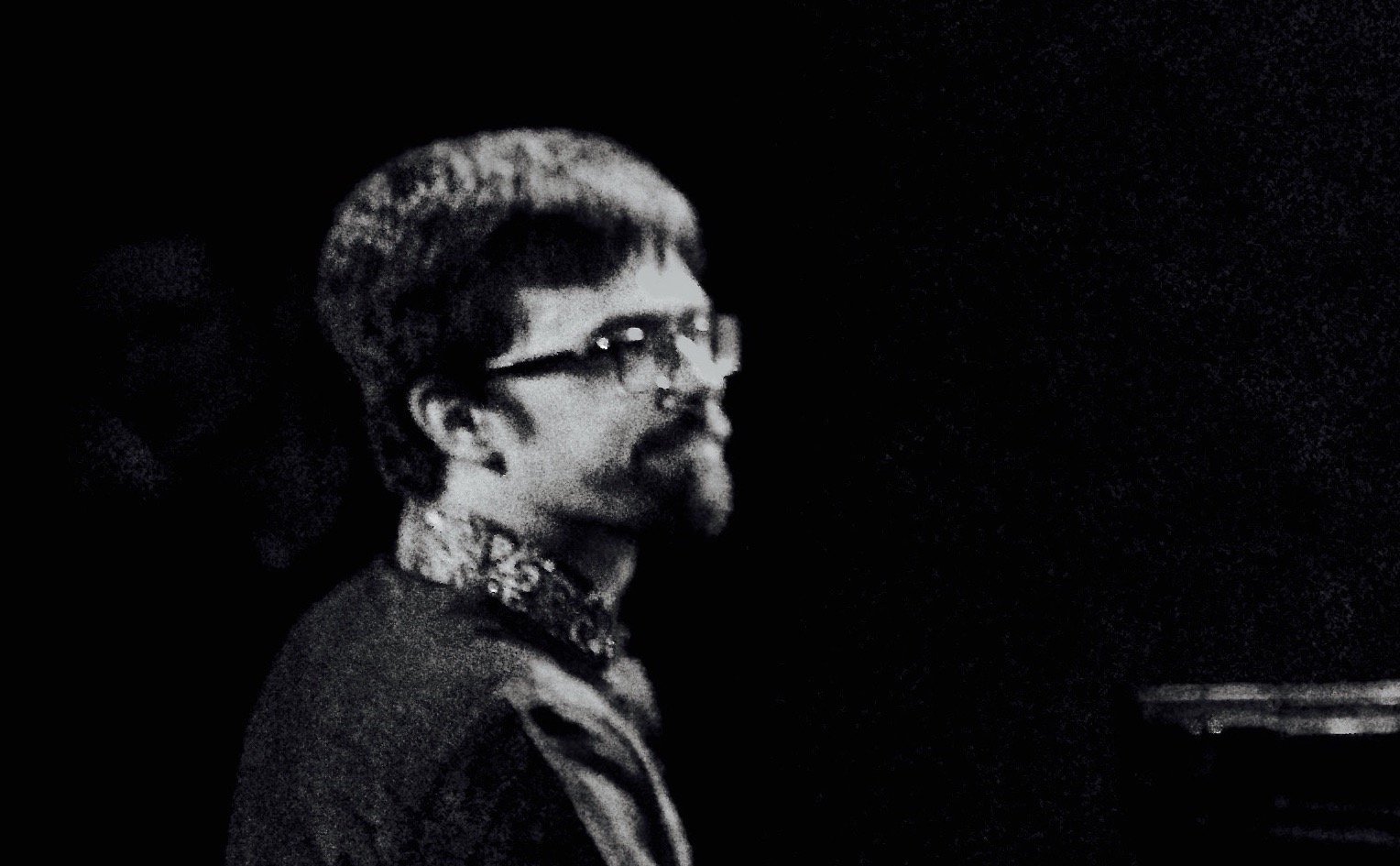Hearing the Next Thing: Micah Thomas Speaks
Photo courtesy of the artist.
by Sarah Thomas
Since making his Gallery debut in 2017, pianist and composer Micah Thomas has used the Gallery stage to try out new projects and stretch in new directions. A recipient of the 2022-2023 TJG Residency Commission, Thomas presents the resulting piece Mountains at The Jazz Gallery this weekend with a septet of peers. We chatted with Micah about writing for large ensemble, exploring new ideas in the piece, and finding the space between improvisation and written composition.
The Jazz Gallery: The show featuring your Jazz Gallery Residency Commission is coming up. Could you start by telling me about your piece?
Micah Thomas: The piece is not really written as a suite. It's five distinct pieces that use a type of sound I've been hearing for a while. I've been waiting to try to get that sound out, and this was the time to do it. But it's pretty simple. It's fully using the force of the large ensemble and the power of what that many people creating together can do.
TJG: You’ve talked before about the ideas in this piece of contrasting density and scarcity, structure and freedom. What does that mean for you and your writing process?
MT: The most obvious way I'm using this contrast is there are parts of the pieces where I'm writing pretty detailed music, then there are other places where I’m letting certain musicians, or the whole ensemble, freely improvise. Then there's all the stuff in the middle—free improvisation sections, but I'm giving them guidelines. This is a challenging piece to play, because you have to exercise all your faculties, in terms of both improvising and reading and interpreting existing material.
The other way I'm using contrast is in dynamics. Seven people can sound like one person or they can sound like seven people. The sound can be full, or the sound can be small. I'm pretty much using the entire gamut.
TJG: Have you explored these areas of contrast to this extent in other pieces or ensembles?
MT: I think the closest I've gotten is with Immanuel [Wilkins]’s quartet. I would say that with my projects so far, my creativity and experimentation is probably in other areas. So this is something that I'm really specifically exploring for the first time in a major way in this project.
TJG: How did you land on this particular instrumentation and these band members?
MT: I was originally hearing an even larger band, but then life happened. I had so much to do, so instead of writing for even more instruments I decided to start this off by keeping it to a core group of musicians. The core of the sound I was hearing is a septet. So that's how I arrived there. I kept a traditional instrumentation because I want to have freedom to either keep the piece the way it is or build upon it in the future.
In terms of who I called, I’ve been playing with Immanual and Kweku [Sumbry] for seven or eight years in Immanuel’s quartet. I knew of Kanoa Mendenhall from back when we were both at Juilliard. Then I started to hear her more, and I've been trying to play with her as much as I can.
Nicole [Glover], Adam [O’Farrill], and I did something in Germany together at the SWR NEWJazz Meeting. We spent a lot of time playing together for that and I wanted to keep that going.
Caleb Smith is a trombonist who I basically have not played with yet. I hired him because I love the stuff he posts on Instagram. I think he's an incredible musician and composer. If I'm not mistaken, I think he moved to the city recently. So I’m excited to start working with him.
TJG: As you've been exploring this new ensemble size and these new concepts, have you noticed anything that’s changed about your compositional process?
MT: I don't consider myself as talented of a composer as I am an improviser. I have been less sure about my composing. But as I’ve composed more, I'm finally starting to get to the point where I trust my intuition.
For this project specifically, both in terms of creating its structure and of the content within that structure, I approached it a lot less planned and a lot more just putting something on paper. Writing down what I'm hearing, then writing down the next thing I'm hearing, then putting it all together. That's how I approached it.
One thing I was working on with this project was how to incorporate improvisation. I wrote with these musicians in mind, and what I realized is I knew stuff that they did. I knew zones that they got into. So I may be hearing something and not be sure exactly what to write, but I know what to tell them that will allow freedom to create something like that, or even something different but within that territory.
It’s been a combination of recognizing whether I’m hearing something that I need to write down, something that can better be created with some written instructions, or something that will be created naturally if I just let them do whatever they want without telling them. So I’ve used all that as a way of getting to what I was hearing.
Micah Thomas premieres his The Jazz Gallery Residency Commission on Friday, June 16 & Saturday, June 17 with his band. The group features Micah Thomas on piano, Adam O’Farrill on trumpet, Immanuel Wilkins on alto sax, Nicole Glover on tenor sax, Caleb Smith on trombone, Kanoa Mendenhall on bass, and Kweku Sumbry on drums. Sets are at 7:30 and 9:30 p.m. ET. $30 general admission (FREE for members), $40 cabaret seating ($25 for members), $20 Livestream (FREE for members). Purchase tickets here.

